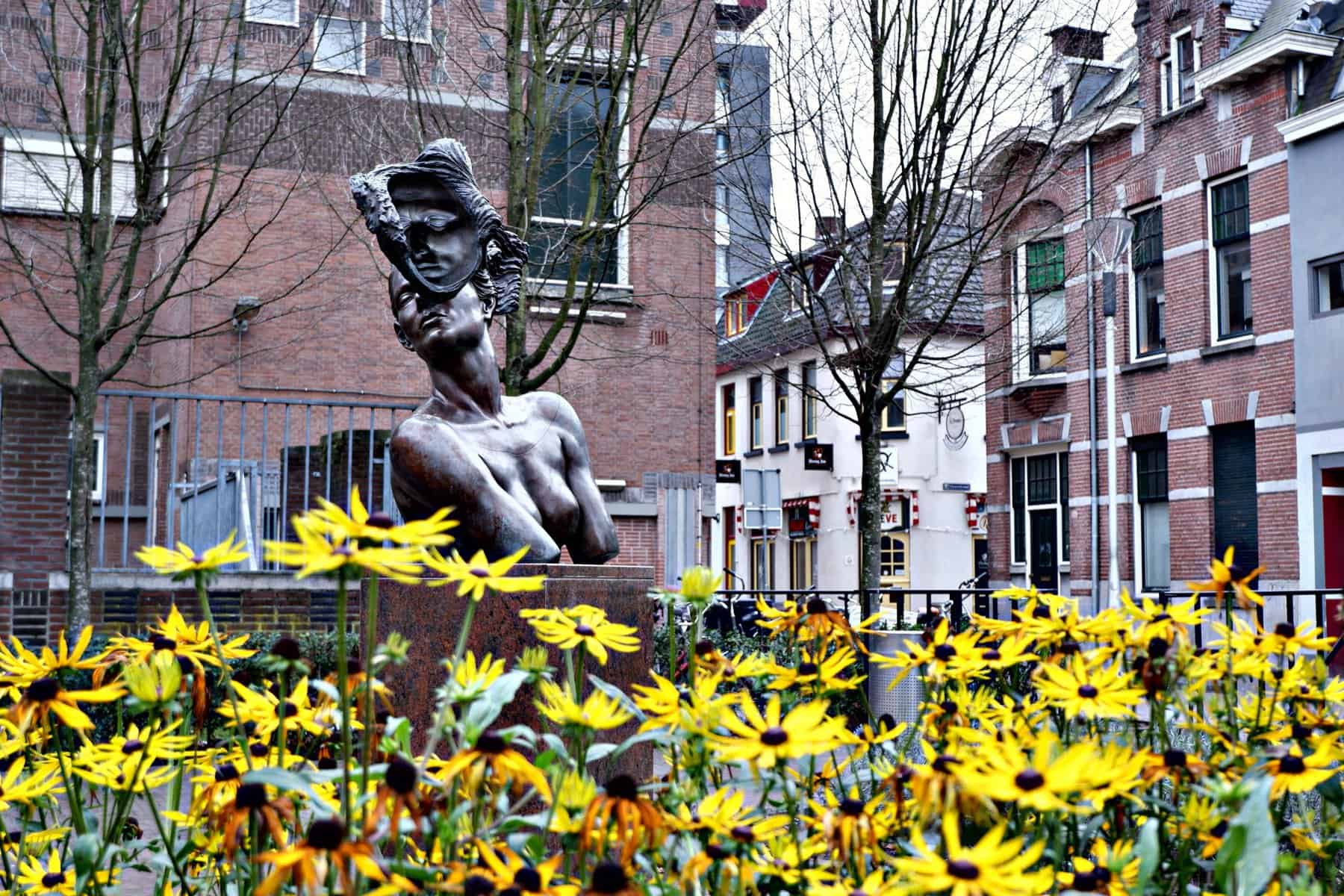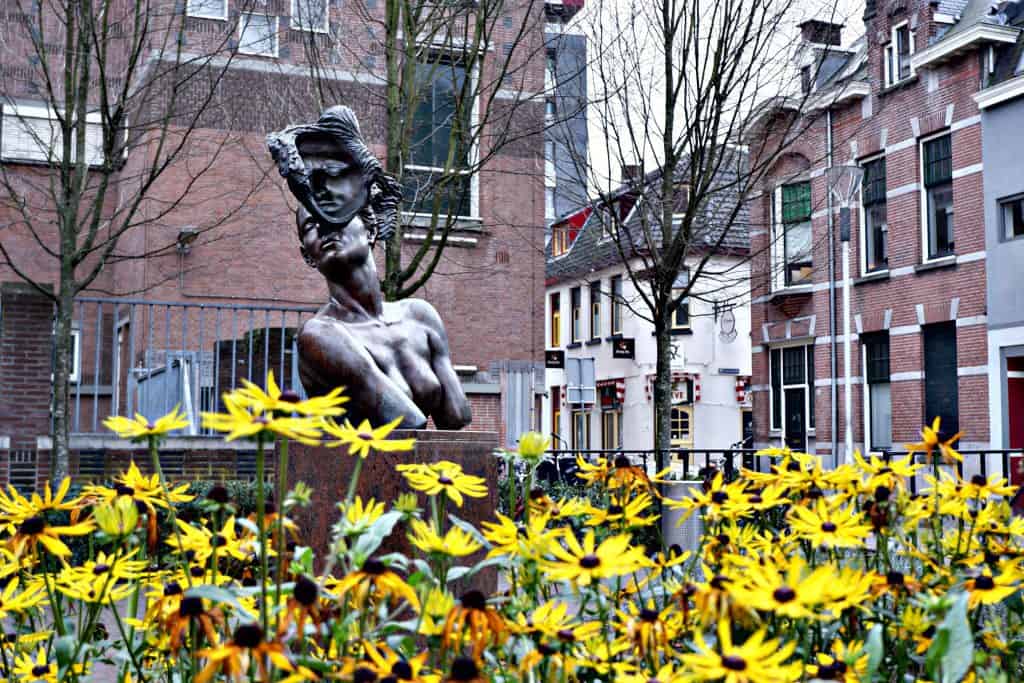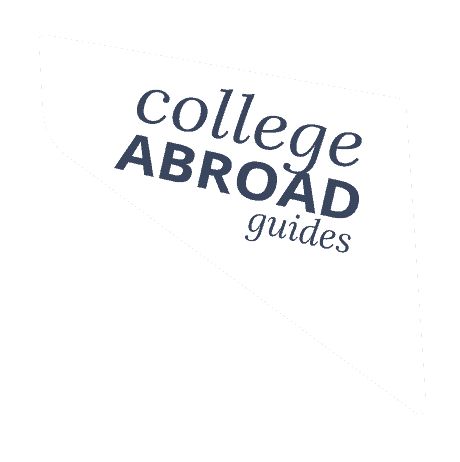Attending Down-to-earth University College Tilburg

- Originally published
- Last updated on September 1st, 2023 at 02:47 pm
Table of Contents
While many students overlook this program, it’s one of the best UCs for students looking for a laid-back atmosphere, a cool town, and a heaping helping of independence.
University College Tilburg is a broad-based, international-friendly liberal arts and sciences program
We think it’s worth considering for students who want a tight student community but with no residency requirement.
Students also get a pretty town where they’ll regularly bump into classmates, and a social science/Euro-focused program with great rankings in economics, business, and psychology. Students can easily reach everywhere they need to go by bike. It’s a welcoming, safe environment that multiple students described as “home” and “approachable.”
When we first started reaching out to students to talk about their program here, students flooded our inboxes to talk about their school. Like, literally flooded. We have notebooks full of Tilburg student interviews — more than every other UC. Clearly, this down-to-earth town is beloved by its students.
That says a lot about UC Tilburg. Overall, it’s an ideal place for students seeking an innovative, small-town atmosphere to get a liberal arts and sciences education. Let’s look closer.

University College Tilburg Basics
Associated with: Tilburg University
Degrees: BA, BSc
Concentrations: Social Sciences, Law in an International Context, Arts and Humanities, Business and Economics, Cognitive Neuroscience
Location: Tilburg, North Brabant, NL
English: Yes, the entire program is English-taught
Cost for out-of-European Economic Area (EEA): €8,900
On-campus housing cost: €460
FAFSA funds: No
Abroad from abroad: First semester of 3rd year with partner universities
Student body: 33% international with a total of ~480 students
Five adjectives: open-minded, inclusive, supportive, broad, non-residential
University College Tilburg Ranking
The University of Tilburg (The parent university of the University College Tilburg Liberal Arts and Sciences program) ranks by the Times Higher Education World University Rankings as 201-250 for the 2021 academic year.
That’s been fairly consistent for the last few years, spanning rankings of 195 through 300. Times ranks universities based on what it calls “pillars”: teaching, research, citations, industry income, and international outlook. It also ranks programs within the university.
At the University of Tilburg, the highest-ranked programs are psychology (61), business & economics (67), and law (65). One student at UCT who recently graduated with a bachelor’s degree said the program made him feel highly capable of a master’s in international law, although the program itself was not within the law school.
U.S. News ranks global universities in the Netherlands, though not university college programs specifically. They rank the University of Tilburg as #13 in the Netherlands and #490 globally). The university is also a standout in the U.S. News rankings in psychology, plus economics & business.
University College Tilburg advertises its #72 global ranking in Social Sciences & Management from the QS World University Rankings 2021.
These stand-out programs are areas with built-in concentrations in the University College Tilburg Liberal Arts and Sciences program. Social sciences, psychology, and business & economics are well-respected and highly ranked by multiple rankings experts.
Is University College Tilburg a Good University?
In general, Dutch universities are stellar, and Tilburg is no exception. It ranks high globally, but more importantly, it maintains a small but mighty catalog of courses that can all facilitate a world-class undergraduate education and admission to reputable master’s programs.
Many students expressed that they expected the level of education to be high and that they were not surprised to find the teaching was outstanding.
Another student said she found herself well-prepared for her master’s program, saying that her broad knowledge in multiple disciplines has served her well and that she found it an advantage for her international master’s program.
Is it Hard to Get into University College Tilburg?
University College Tilburg gets about 500 applications annually. With a total student body of around ~480, that means about 24% of applicants each year eventually attend UCT.
University colleges in the Netherlands are relatively selective, with letters of motivation and student interviews required. This makes these colleges more selective than their general university counterparts. Notoriously desired University College Amsterdam, for instance, admits around 20% of applicants for its intensive three-year residential program.
Other university colleges are less selective, but still, meeting the minimum admissions requirements is no guarantee of admission.
Campus Tilburg
The Tilburg campus is sprawling. The oversized feel is down to UC Tilburg’s being a part of its parent university’s campus.
This means the university college finds home in a building with other disciplines, and students are perhaps less “in a bubble” here than at other UCs. There is a common room, however, which is unique for the university college, and many students find one another by hanging out there. Pull up a rocking chair and get to know classmates, who crowd the room between classes.
The campus has its own buildings, more like the campus of an American university. Yet there’s no student housing.
For students who want a bit more independence and freedom without the hassle of a roommate, but with a contained university campus rather than a “city” or “commuter” experience, the UCT campus is ideal.
Historic Tilburg: Artsy from the Beginning
Once a textile town, you’ll find echoes of the town’s past in its textile museum as well as statues that recollect when inhabitants used to sell their own urine to the wool factories that used it to wash wool. You can even visit the textile museum, complete with a lab where huge plotting machines, along with world-renowned artists, weave digital designs into masterpieces.
It all started when Tilburg was a collective pasture land for surrounding flocks, and when the industrial revolution turned most houses into cottage weaving businesses. Now that sheep are gone, Tilburg’s hold on the artistic imagination remains. This history reflects Tilburg today: it may be small and rural, but it uses innovation and art to stake a claim to the world’s stage.
“The city of Tilburg is more fun and prettier than I expected…it’s kind of a running joke that people say, ‘Why would you go to Tilburg if you could go to Amsterdam or Utrecht?’ But it’s lovely.”
The Current Tilburg Appeal
Located on the south-central rim of the country, the city is closer to Antwerp than Amsterdam and is still surrounded by nature — especially forest. It serves as a convenient stop between Eindhoven and Rotterdam. The university, with its artistic culture and Trappist brewpubs, is convenient to the bigger commercial centers of the country.
“Tilburg is small, even by Dutch standards.”
The local train station runs right into the center of the university and most students use it to commute to find things to do on weekends. Being sandwiched between larger cities may not be conducive to students’ party lives, but it serves a thriving startup scene. New businesses percolate here and use resources from nearby big cities.
In town, there’s a large, pedestrian-only central shopping district that can satiate students’ H&M and Body Shop fixes. It can also introduce them to the local delicacy, called bitterballen (friend beef stew croquettes).
One current student says the compact town serves student social life well because “there is one street where almost all the bars are and…there are parties every day and you will almost always run into someone you know because it is all in one place.”
Student Hotspots in Tilburg
Back in town, Tilburg’s charms are more hipster. For example, the Spoorzone is a mural-covered old train yard across from the city’s train station, purchased by the city, and redeveloped for students.
Have a sandwich in De Wagon, a refurbished Belgian train car where you can throw back an Austrian beer and ramen with bacon. If Utrecht is a refined and mature Amsterdam, Tilburg is Amsterdam’s punk rock little cousin.
“The general culture we have is very inclusive of each and everyone, no matter what background they may have.”
It’s got notable indoor and outdoor skate parks, the biggest hip-hop festival in the Netherlands, and a penchant for insane sensory experiences like Dolores’ Meta Maze, a sort of escape room/corn maze/fun house/art gallery.
Stay over the summer for the Benelux’s biggest carnival, the Tilburg Fair, a 10-day extravaganza with its famous “Pink Monday” LGBTQ celebration. It ends with a non-traditional funerary procession that mourns the festival’s closing with fireworks.
The Non-Resident Life without Campus Accommodation
There is no campus-associated housing at UCT, and in fact, housing is a hot-button issue in Tilburg. Some students have found it near-impossible to find housing. This is a concern at a lot of Netherlands colleges that do not guarantee housing.
In fact, one summer semester housing crunch forced the university to step in with planned campground accommodations. It’s not ideal (by any means), and it can be a stressful part of moving to the Netherlands to attend UC Tilburg.
Students typically start their searches with the student housing office, registering with agencies, and looking into private rentals like studentenhuizen (student houses).
Housing is even such a hot-button issue in Tilburg that Student Housing Holland, a private partner, promises white glove service to incoming international students, including airport pickup, furnished housing with other international students, and a loaner bike to boot.
Campus Vibes in Tilburg
Though founded in the 1920s, university buildings are mid-century boxes, albeit with modern interior lecture halls and study nooks.
The university’s architectural standout isn’t even affiliated with the university: it’s Tilburg’s LocHal, a voluminous new city library built into the old train car garage. Instead of trains, it houses study spaces, coffee, and lots of amphitheater seating for lounging and reading. The pink lighting, steel beams, and glass walls are a dramatic departure from the campus library’s sterile study spaces.
“We have student committees and international groups to get adjusted. Since everybody speaks English, it’s not super complicated to get adjusted.”
There’s also a student organization serving university college students that can help students make friends with parties, dinners, lectures, trips to other university colleges, and almost-annual study trips throughout Europe.
Because the larger University of Tilburg is in town, students often find other connections in an extensive network of available clubs like sports, theater, and debate.
“UCT is very international and the Dutchies that are in there are willing to show the internationals around so there is a very open sphere in the study. Even though this year was mostly online this feeling was still there!”
University College Tilburg Program
Students praise the UC Tilburg interdisciplinary 3-year liberal arts and sciences program, saying they joined because they tend to skip between disciplines in their everyday lives and couldn’t decide on a collegiate route that was more traditional. UCT allowed them to continue exploring multiple areas for a broad, interdisciplinary approach.
But there are drawbacks to this student-centered approach. Some students report feeling lost, as if there was not a focus for their exploration. They find it difficult to find their own path.
Career preparation can loom large at the end of their highly personalized education, and many students said they knew too little about their options and desires to create their own opportunities out of so many class choices and experiential learning opportunities.
A Multidisciplinary Degree for Social Scientists
Additionally, the innovative pedagogy at UCT leans toward the social sciences, with one social science major saying he loves that he found so much coverage of European social and political issues in the program, but he couldn’t see students in the hard sciences being happy in the program.
Tilburg’s major areas within its liberal arts and sciences program are themselves interdisciplinary and, as Tilburg brands their approach, “radically open.”
First, students tackle the common core for a multidisciplinary foundation. According to students, knowledgable and engaging teachers take the lead from the start. However, one international student says, “there’s not much time for an introduction to five majors,” as well as “interdisciplinary courses and basics like research methods,” which can make the first year seem like a buffet of unrelated options.
The second year brings increased cohesion as students choose a major.
Within the university college, there are five majors from which to consider: business and economics, law in an international context, social sciences, humanities, and cognitive neuroscience. Some students say that European issues are the focus within all the programs and are a faculty strength.
Third-year students will choose a minor (typically during an exchange semester) and, in their final semester, write a thesis that will propel them onward from Tilburg.
The university college has recently introduced professional practice electives if you’re worried about your marketability after graduation and want more hands-on professional training.
Classes and Teaching
Tilburg’s unique academic approach, and team-taught classes, are a selling point. However, students give them mixed reviews. One woman says the approach helped give her a different perspective on problems, but she thought some of the courses were structured as a “team” in name only, and were more like “two different lectures, one after the other.”
“Most UCT students are fairly proud of their uni, but they aren’t outspoken about it.”
Another academic staple at Tilburg gets overwhelmingly positive feedback: small seminars are ubiquitous, and students really like the discussion and personalization they offer.
Lots of current students said they feel satisfied they are getting to know their professors, mixing with students in all three years, getting individual help, and making friends with classmates quickly due to the intensive, conversational approach.
This creates an environment with a strong group identity or “ons kent ons” (“We know us” in Dutch).
“The students that are really into STEM/quantitative-subjects would not really be too happy at UC Tilburg as a lot of the programme focuses on social issues and philosophical topics.”
The feeling is enhanced by a big UCT group chat where first-year students can get feedback on how to do assignments or any other help they need finding their way.
University College Tilburg Students
University College Tilburg students are highly cohesive, with the university college tradition of creating a community where students can support one another. Additionally, the student association has both an international student and academic committee that can offer a hand to struggling students.
One student says the program is close to 55% Dutch and 45% international, with plenty of Dutch students happy to live and socialize with a global student body. Its international orientation is a selling point for many students.
University colleges are generally designed for an international atmosphere and for welcoming student experience from across the globe — the UCT website boasts students from 30 countries.
This helps keep the mindset broad and the class discussions lively, with many experiences and points of view valued in the classroom.
How to Apply
US students will need four AP exams with a score of 3 or higher, or a year of college to be admitted to Tilburg, which does not cite a GPA minimum for its American diploma requirements.
One Dutch student said she chose Tilburg because it was a university college with less stringent grade requirements and because she wanted an honors college environment but did not have straight A’s in high school. You can substitute AP exams for a year of satisfactory college coursework in the U.S. or at an applied sciences university in the Netherlands, or a “foundation year” at the University of Tilburg.
Because coursework and diplomas vary, the college encourages students to apply to see if their background fits their requirements.
To apply, use the national Dutch application portal, Studielink, to register for the liberal arts and sciences program by May 1 for fall admission for non-EU students.
Candidates may be invited to an admissions interview (which is required), and then offered a place in the class if the program is a “good match.”
One student says the interview process was nerve-wracking, with her faculty interviewer remarking that she was a risk because of her less-than-stellar high school grades. Nevertheless, she was offered a place in the class and is set to graduate with merit after the three-year program.
Compare other Netherlands UCs
On the Tilburg fence? Take a look at other UCs like University College Maastricht or Amsterdam University College. And figure out more about residence and course specializations that can help you decide between university college liberal arts programs.
Related Posts

Jessica Share
Jessica is the writer, Ph.D., and mom-of-an-abroad-student-in-the-UK at the helm of College Abroad Guides. When she's not asking college students where the coolest place to hang out in their city is, she's figuring out how she can make $60 imported Greek oregano potato chips and £50 British bacon potato chips appear on her doorstep for the cost of a local bag of Lay's.





